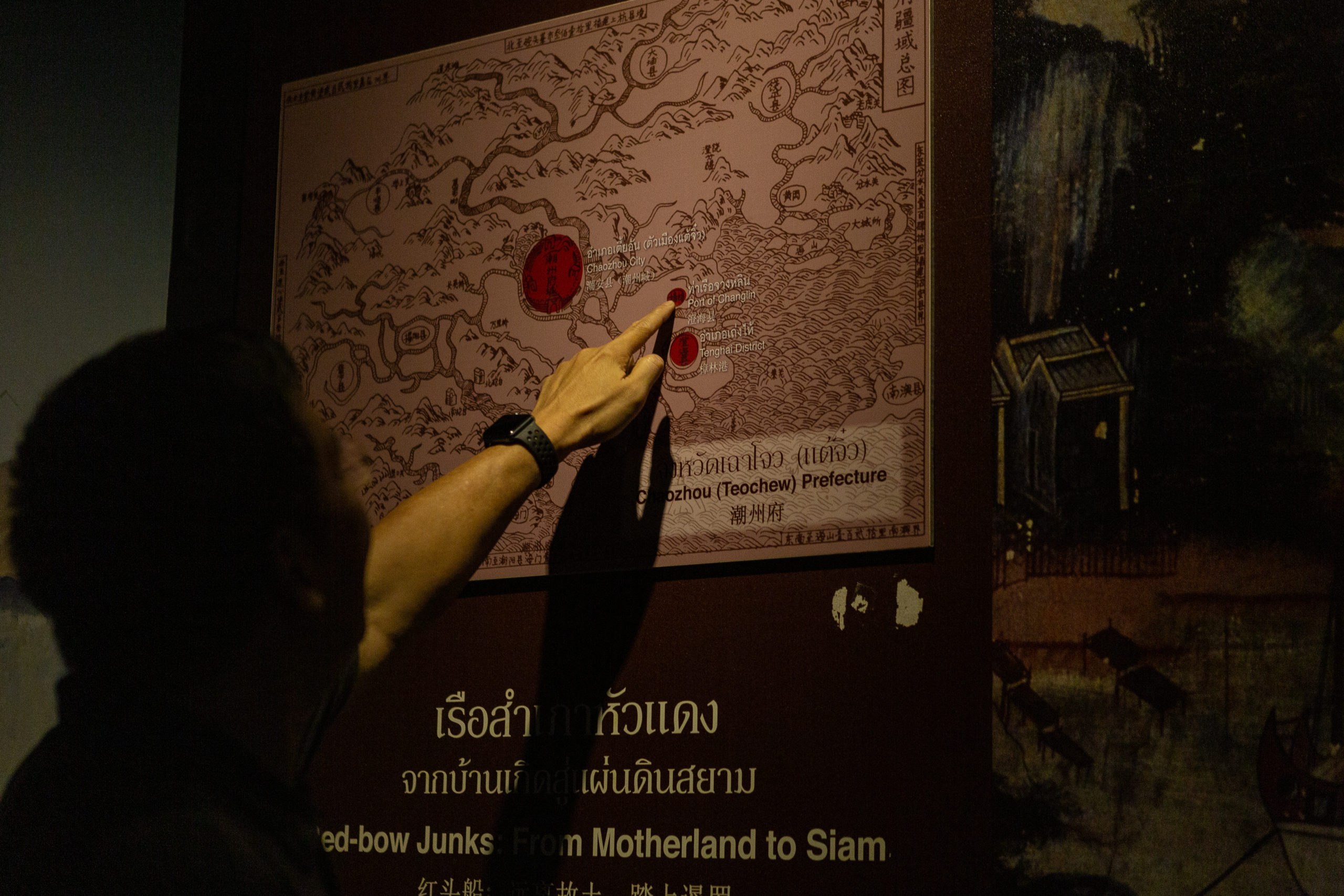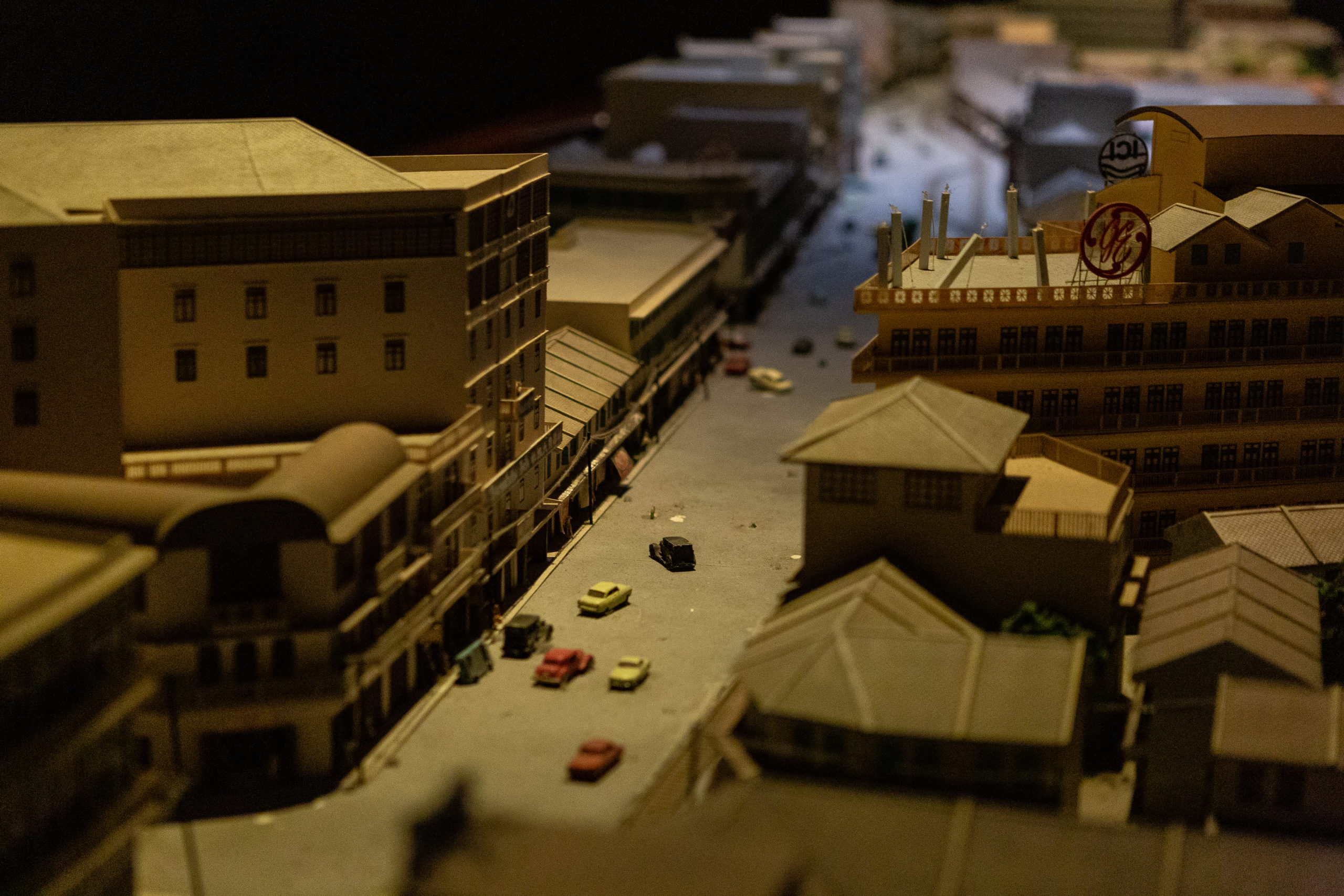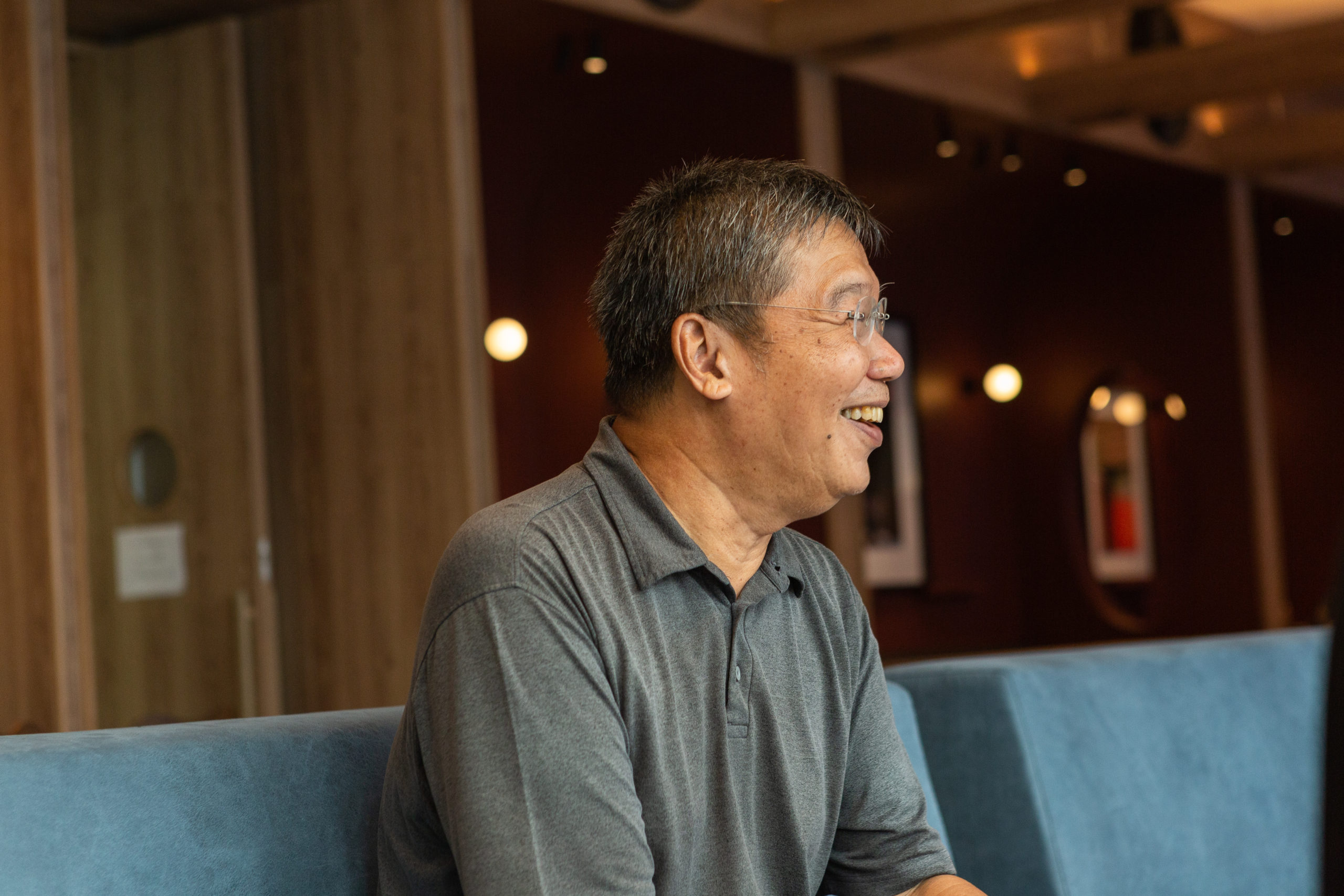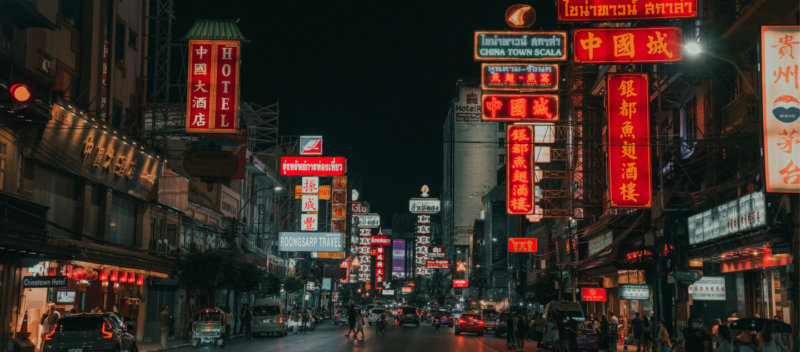

He’s been called a community historian, local expert, and teacher. However, TEDx speaker and Chinatown local Somchai Kwangtongpanich insists that he’s just an ordinary rope seller. Although he studied business administration, it’s clear from the way he draws attention to the stories, language, and culture of his neighbourhood that history is his passion. To get to know him better, we took a fun stroll with him along Chinatown’s vibrant streets.
I’m just a regular man who lives in Sampeng. I was born here, grew up here, and now I have a house here. In my younger years, I followed the path of a typical Thai-Chinese kid of the time: during the day, I’d attend Peiing Public School, and in the evening, I’d take Mandarin classes at Sitabutr. This was the system for Chaozhou descendants of my generation, and it meant that we had a pretty good foundation of Chinese. As time passed, I didn’t speak the language much, so my ability to use it faded away. However, I eventually found myself re-learning it again. I’ve never moved out of my childhood home; I still sleep here every night.
The word ‘Chinatown’ means nothing to me, but the word ‘hometown’ does.

People view Chinatown as a place where Chinese people live, but to me, it’s home. Here, locals are used to speaking Teochew before they speak Thai. This was especially true for the older generation; because there was no TV, they grew up speaking and hearing nothing but Teochew.
When Chinese immigrants moved here, they brought over more than pillows and mats; they came with shovels and spades. They built a city, introduced new types of food, and presented a new way of life. This is mixed with many with Thai temples and structures, but the Chinese culture in Chinatown remains strong, partly due to the Chinese education system.
The word “Chinatown” means nothing to me but the word “hometown” does. The area that everyone else calls “Chinatown”, I call my “hometown”. This distinction is very important to me.
I’ve come to believe it’s my responsibility to have in-depth knowledge about the place I was born and raised.
When I was young, my mother always dragged me along with her wherever she went, but I took a lot of her efforts for granted. I actually started developing an interest in my own cultural history inadvertently and subconsciously, when I started to question the Chinese rituals that my mother strictly observed. After my mother died, I was 30 years old and questioning a lot of things in my life, like what was right and wrong, and what was important; I hated being unsure of things. That was a huge turning point, and I decided to find out the answers to these questions for myself. So, I started my learning journey at a coffin shop, asking about those traditions. I put a lot of effort into researching my culture and my home, reading all the books that I could find. I would also compare photographs that I had with ones on the web.
When I started doing business at home, I became interested in the way Chinese people pay their respects to God; I wanted to understand the older generation better. I discovered that their rituals are all related to the seasons, from when people still relied on self-cultivation, agriculture and sharing with others in their community. Since then, I’ve made an effort to remember to pay respect to God and my ancestors. Like many people who are part of my generation, I left the language behind ten years ago, but I’ve come back to it because of my interest in culture and history.
I don’t have any fears or concerns regarding how it will change… As long as it comes with balance and makes a good impact on the community.

Chinatown is constantly evolving. I can’t predict the future, but I can guarantee that it will change to meet the demands of the people. Even without Covid-19, this place is undergoing a major transition. The trading system has changed. Chinese people set up their booths and shops, importing stock from China. However, goods are currently circulating faster than ever, so traders need less space. This means that many spaces free up, so other types of businesses have room to establish themselves. With the rise of Thai tourism, a large number of hostels have been built. The question I encourage everyone to ask is, does the place that’s being built and created have a positive impact on the community? There are places that I admire, like FV Cafe, Art Play House and TCDC, because they all express the identity of Chinatown.
Connecting the subway [MRT] to Chinatown also allows outsiders to come in and absorb the history and architecture of the neighbourhood–as well as the food, which is everyone’s priority. So, I don’t have any fears or concerns regarding how it will change. I can live with it because I believe that change is inevitable and necessary, as long as it comes with balance and makes a good impact on the community.
I’m working on a collaboration concept that explores what the best time is to consume a certain type of food or drink, or visit a certain place. It’s also a concept that’s about encouragement. Now’s the time to stay active, to understand oneself, one’s strengths, and each other. This is not the time not to talk about how things are going to be affected by Covid-19. Instead, we have to act and make progress despite the crisis. Life goes by as usual, and we can’t sit still. We have to live with purpose and consider all the different paths we can take moving forward. That’s the Chinese way of thinking.
Culture. Through understanding our foundational principles and traditions, we understand our way of life. Ten years ago, an old person came to my house every single day to talk to and share their story with me. Perhaps, I will be among the last generation of people to hear stories like these.
I truly believe that we can learn a lot of life lessons from the Thai-Chinese community. They’re extremely clever people, businessmen, and conversationalists. For instance, no matter how busy they are, they’d never say “no” to a request from a customer. Instead, they’d say “we will get this done for you by next week”. It’s important for us to be open-minded so that we can be better people, live together with true understanding, and rely on each other.

Everyone will have their own sense of place when they visit Chinatown. If you were to ask, “which place best captures the essence of Chinatown?”, one person would answer the Chinese gate, and others would say Wat Traimit, the market, or Wat Mangkon. Some people would also be inspired by the image of the red light intersection in front of 7-Eleven. My sense of place in Chinatown is in the area of Yaowaphanit Road where the gold shops are. In the old days, this area had four cinemas, a Chinese bookstore, a newspaper shop, and it was always crowded with people.
Overall, Chinatown is a very messy and chaotic place, and it’s impossible to describe what it’s like in one go. Whenever someone asks me to talk about Chinatown, I would always encourage them to experience it for themselves.
Somchai Kwangthongpanich was the perfect local guide for us, and we loved hearing his stories and experiences. In fact, we suspect that he can find any destination in Chinatown with his eyes closed. For all its small alleys, winding pathways, and hidden passageways, Somchai traverses his neighbourhood with ease.
Seeing something new in the area every day for more than half a century has not only made Somchai open to change, but willing to learn new things and able to adapt his daily life and business perfectly. His charming sense of humour, insightful observations, and sincere humility is both contagious and truly inspiring.
